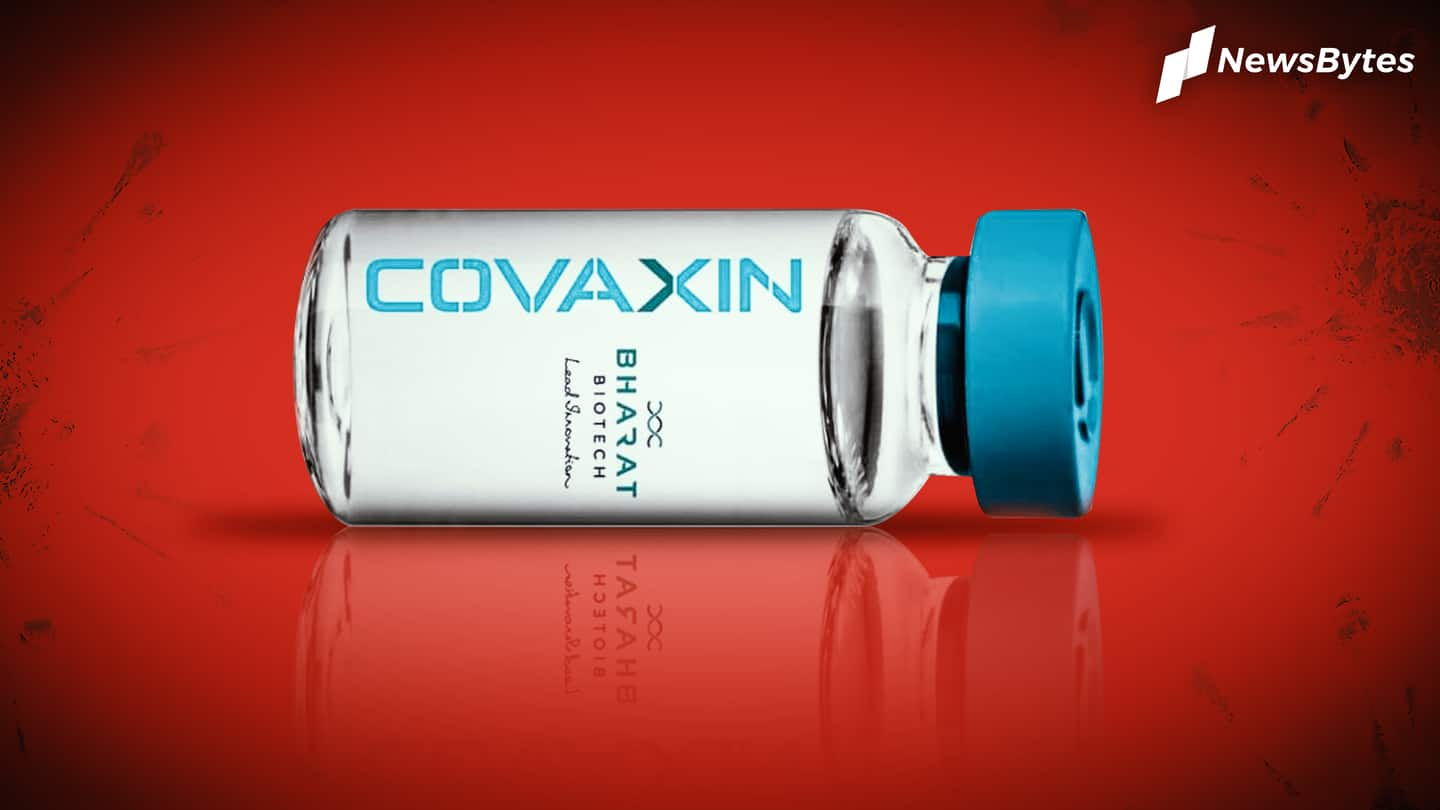Expert panel sets conditions, ICMR's COVAXIN August-15 target looks unachievable
What's the story
On July 2, the Indian Council of Medical Research (ICMR) revealed its plans to launch COVAXIN, the COVID-19 vaccine developed by Hyderabad-based Bharat Biotech and ICMR, by August 15.
However, weeks before ICMR announced the target date, the Drugs Controller General of India's expert panel set four conditions for Bharat Biotech, which will result in the vaccine trials taking longer than the "unrealistic timeframe".
Conditions
Expert panel set four crucial conditions for Bharat Biotech
After a meeting on June 15, a Subject Expert Committee (SEC) of the apex drug regulator set four crucial conditions for Bharat Biotech, which is developing the vaccine candidate.
While the DCGI earlier permitted Phase-I and Phase-II clinical trials of COVAXIN, the SEC, which evaluates clinical trial applications, had set these conditions that include submitting Phase-I trial results before starting the Phase-II study.
Details
Trial sites should have facilities to handle emergency situations: SEC
The SEC said that Bharat Biotech "should submit results of the Phase-I clinical trial to the DCGI before initiating the Phase-II study," reported The Indian Express.
It also recommended that "clinical trial sites should have facilities to handle emergency situations such as anaphylaxis (a severe allergic reaction)."
"The investigators should have appropriate qualification & experiences suitable for the conduct of the study," it added.
Trials
RT-PCR test should be used as COVID-19 confirmatory test: Committee
As healthy persons are required to enroll for the clinical trials, the SEC also said, "RT-PCR [reverse transcription-polymerase chain reaction] test should be used as confirmatory test for COVID-19 during screening."
The committee had reportedly set these conditions after Bharat Biotech submitted safety and immunogenicity data obtained in the pre-clinical trials on rats, mice, and rabbits.
ICMR's target
Experts raised concerns over fast-tracking trial process
To recall, ICMR's Director-General Balram Bhargava, on July 2, wrote to the investigators of the clinical trial sites chosen for COVAXIN to fast-track the trial process in order to launch the vaccine for public use by August 15.
However, many medical researchers raised concerns that speeding up the clinical trials would lead to the compromising of "patient safety and ethics."
Information
No launch deadline has been set by SEC
While ICMR laid down an ambitious launch timeline for the COVID-19 vaccine, the SEC set no such deadlines. In fact, experts have said that the SEC's conditions are essential for the COVAXIN clinical trials and will also result in longer trials than ICMR's "unrealistic timeframe."
Key factor
Immunogenicity, a key factor in the trial process
According to an investigator involved in the vaccine trial process, immunogenicity (the ability of the vaccine to provoke an immune response in the human body) will be a crucial factor in deciding whether the trial can proceed to Phase-II from Phase-I.
"What immune response we will get, is the key question. This process may take a few months," said the investigator.
More time
'No way this process can be done in a month'
Speaking about the SEC's condition on submitting Phase-I clinical trial results before initiating Phase-II, another investigator said that Phase-I itself would take at least three months.
"Diverse populations have to be enrolled. We have to check if the vaccine is equally effective in the young, elderly, and people with comorbidities. There is no way this can be done in a month," the investigator said.
Analysis
This process cannot be fast-tracked: Investigator
Explaining why the Phase-I trial would take time, the second investigator stated, "Besides the analysis of the data, the recruitment for the first phase will go on till October," adding this process "cannot be fast-tracked."
He said examining vaccine-induced side effects will be the "most crucial." The investigator added that if the vaccine doesn't produce enough antibodies, it would enhance the vaccine-led infections' severity.
